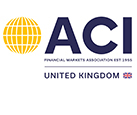Integrity is doing the right thing, even when no-one is watching – C S Lewis
For the past few years our industry has been the subject of unprecedented attention from industry regulators and commentators. Hefty fines (around $10 billion to date) have been levied against many major banks and institutions for their acknowledged involvement in FX rate and benchmark manipulation. A number of individual brokers and traders in the UK have been prosecuted – with varying outcomes – for their involvement in rate rigging. Recently, the UK’s Serious Fraud Office took the (perhaps surprising) decision to drop a 2-year investigation into currency rigging citing ‘insufficient evidence’ for a realistic prospect of criminal conviction (although insisting that there are grounds to suspect fraud). The US Justice Department continues to pursue the prosecution of banks – and individuals – for what it describes as ‘a brazen display of collusion’.
At the same time, myriad and evolving regulation encroaches, increasingly, on hitherto unregulated markets; all of it intended to improve market transparency and to impose more rigorous ‘best practices’ and behaviours on all market participants.
While we have historically (and successfully) resisted the need to be regulated like other financial markets, recent rigging and other market abuse activities have rather dented our long tradition of market integrity, historically defined as ‘my word is my bond’. Instead, we have major organisations stumping up huge fines while claiming ignorance of the behaviour of employees, and individual traders singled out for prosecution claiming to have acted with the full knowledge of their senior management. What neither party appears to have said, however, is “we knew it was wrong and shouldn’t have done it”. In other words, we’re sorry we got caught, not for the act itself.
We shouldn’t need legislation to tell us, individually and collectively, how to conduct ourselves ethically and professionally. As Guy Debelle and the Global Code Working Party have stated, a voluntary, principles-based Code (like the ACI Model Code) is always preferable to a prescriptive, rules-based one.
As we strive to re-establish trust in our markets, standards of conduct must be set (and seen to be applied), education must be available to support adherence, controls must be in place to enforce behaviours and most important, we must be seen to be responsible and accountable for our actions. ACI’s relevance in this process is evidenced by:
- ACI Model Code, long-accepted as THE benchmark for industry behaviour for FX and OTC markets, will be an integral component of the new Global Code.
- ACI Committee for Professionalism, comprising of market practitioners representing every section of our community, remains focused on engendering the highest standards of integrity, conduct and ethical behaviour through the continuing development of the Model Code and market representations on behalf of individuals and organisations.
- ACI suite of qualifications, enhanced with Model Code content, delivers entry level accreditation (Dealing, Operations and Model Code Certificates) and advanced professional qualification through the enhanced ACI Diploma.
- ELAC, our e-learning and accreditation portal, helps organisations fulfil regulatory obligations to demonstrate adherence to internal policies and industry codes of conduct.
- ACI membership itself evidences high standards of integrity; a condition of membership is that members accept the principles and practice of the Model Code.
As C S Lewis said “integrity is doing the right thing, even when no-one is watching”. ACI members and other market participants MUST work together to reclaim the ethical high ground and demonstrate to regulators, industry commentators and other financial market participants that integrity really is our watchword.
